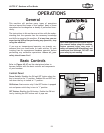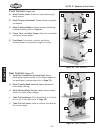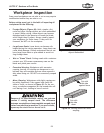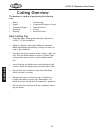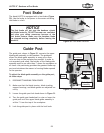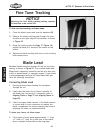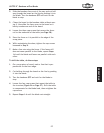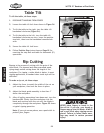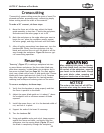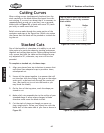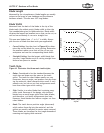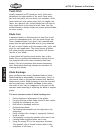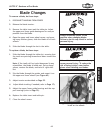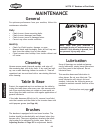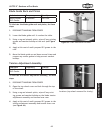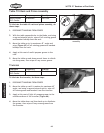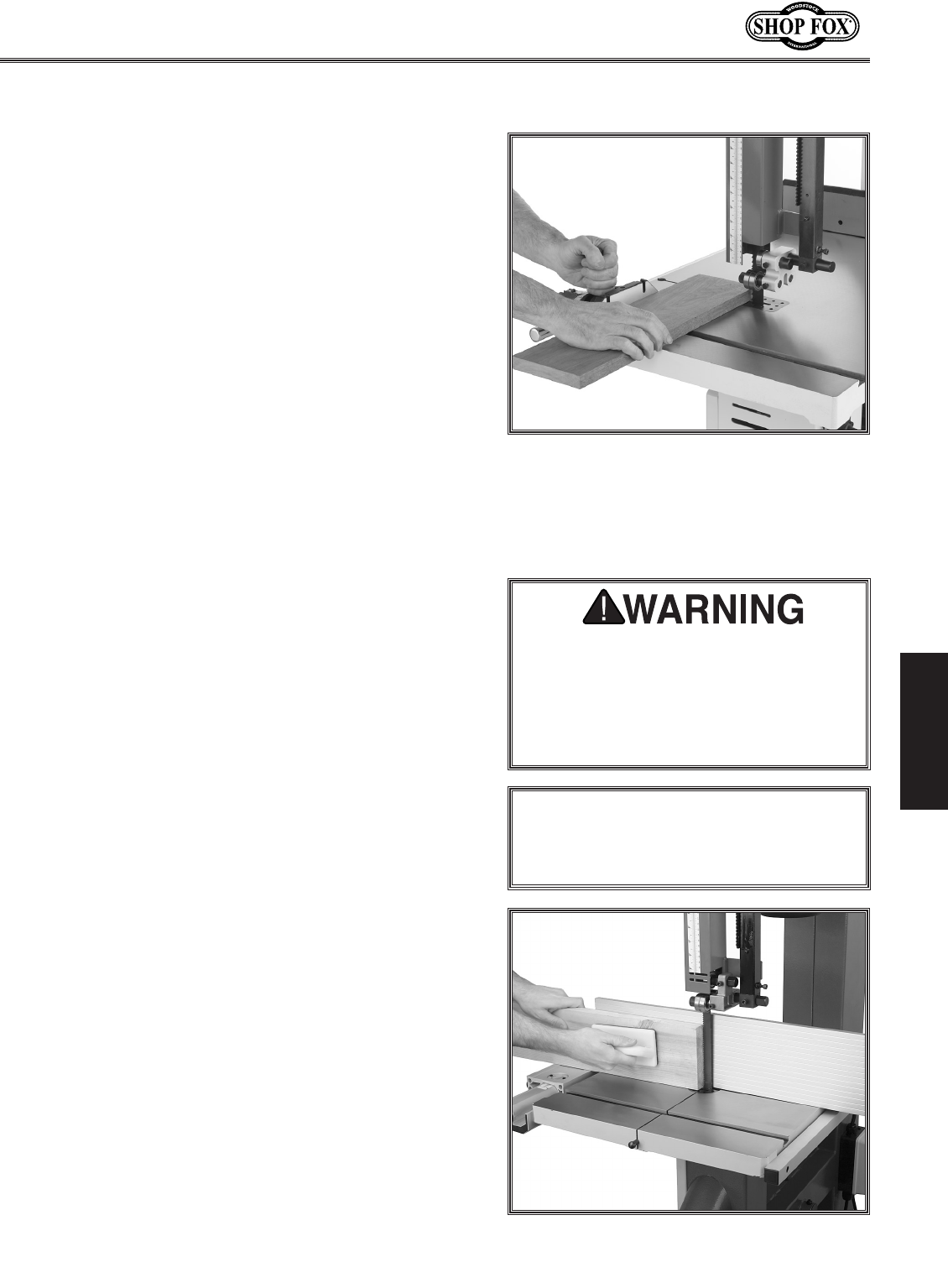
-39-
W1770 21" Bandsaw w/Foot Brake
OPERATIONS
Crosscutting
"Crosscutting" means cutting across the grain of wood. For
plywood and other processed wood, crosscutting simply
means cutting across the width of the material.
To make a 90˚ crosscut, do these steps:
1. Move the fence out of the way, adjust the blade
guide assembly to less than 1" above the workpiece,
and make sure the miter gauge is set to 90°.
2. Mark the workpiece on the edge where you want to
begin the cut, place the workpiece evenly against
the miter gauge, and align the mark with the blade.
3. After all safety precautions have been met, turn the
bandsaw ON. Slowly feed the workpiece into the
blade and continue the cut until the blade is all the
way through the workpiece. Figure 56 shows a typi-
cal crosscutting operation.
Figure 56. Typical crosscutting operation.
Resawing
"Resawing" (Figure 57) is cutting a workpiece into two
or more thinner workpieces. Use the widest blade pos-
sible when resawing—a wide blade cuts straighter and is
less prone to blade lead (see Page 36). For most applica-
tions, use a blade with a hook- or skip-tooth style. Choose
blades with fewer teeth-per-inch (from 3 to 6), because
they offer larger gullet capacities for clearing sawdust,
reducing heat buildup and reducing strain on the motor.
To resaw a workpiece, do these steps:
1. Verify that the bandsaw is setup properly and that
the fence is parallel to the blade.
2. Adjust the upper blade guide so it is about 1" above
the workpiece with a minimum amount of blade
exposed.
3. Install the resaw fence, set it to the desired width of
cut, and lock it in place.
4. Support the ends of the board if necessary.
5. Turn the bandsaw ON.
6. Using push paddles and a push stick, keep pressure
against the fence and table, and slowly feed the
workpiece into the moving blade (Figure 57) until
the blade is completely through the workpiece.
Figure 57. Example of resawing lumber.
NOTICE
The scale on the front rail will NOT be
accurate when using the resaw fence.
When resawing thin pieces, a wander-
ing blade (blade lead) can tear through
the surface of the workpiece, exposing
your hands to the blade teeth. Always
use push blocks when resawing and
keep your hands clear of the blade.



